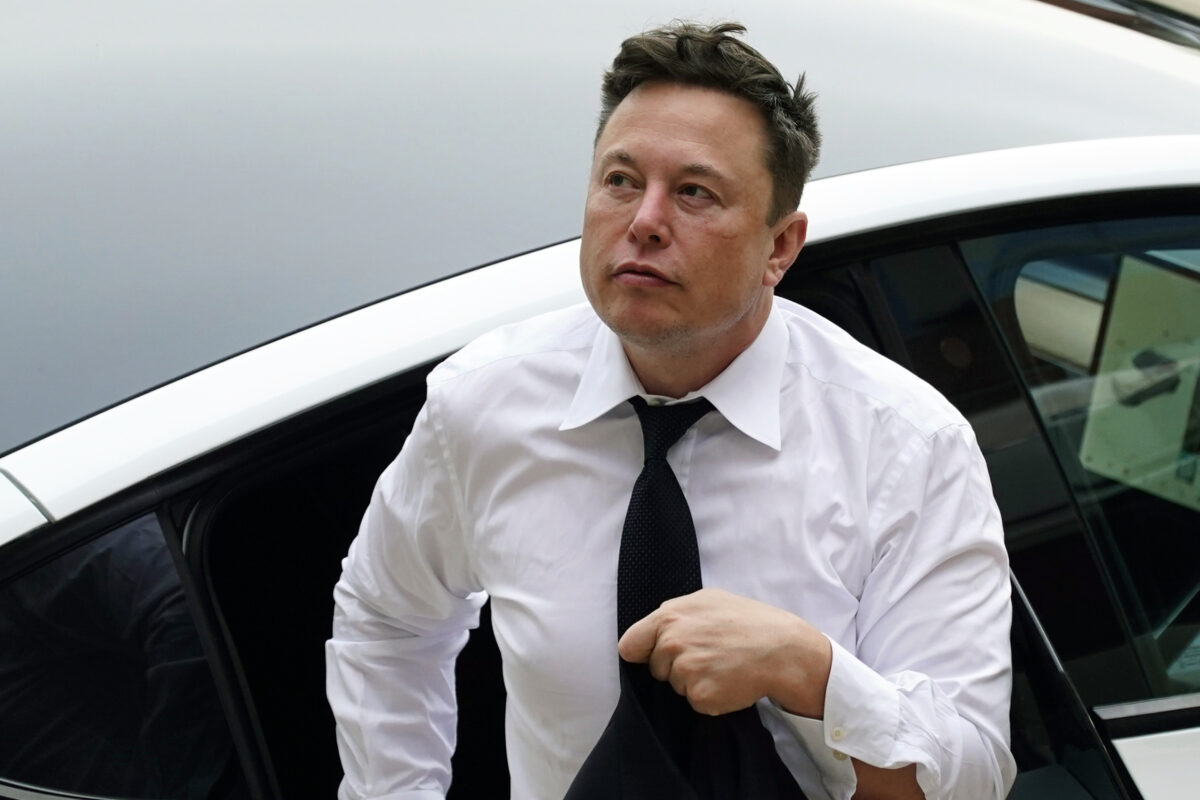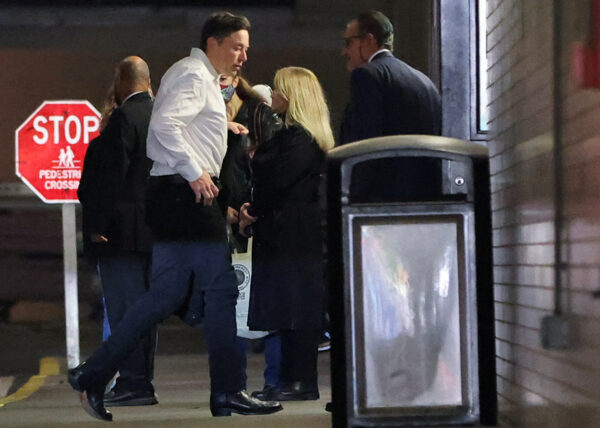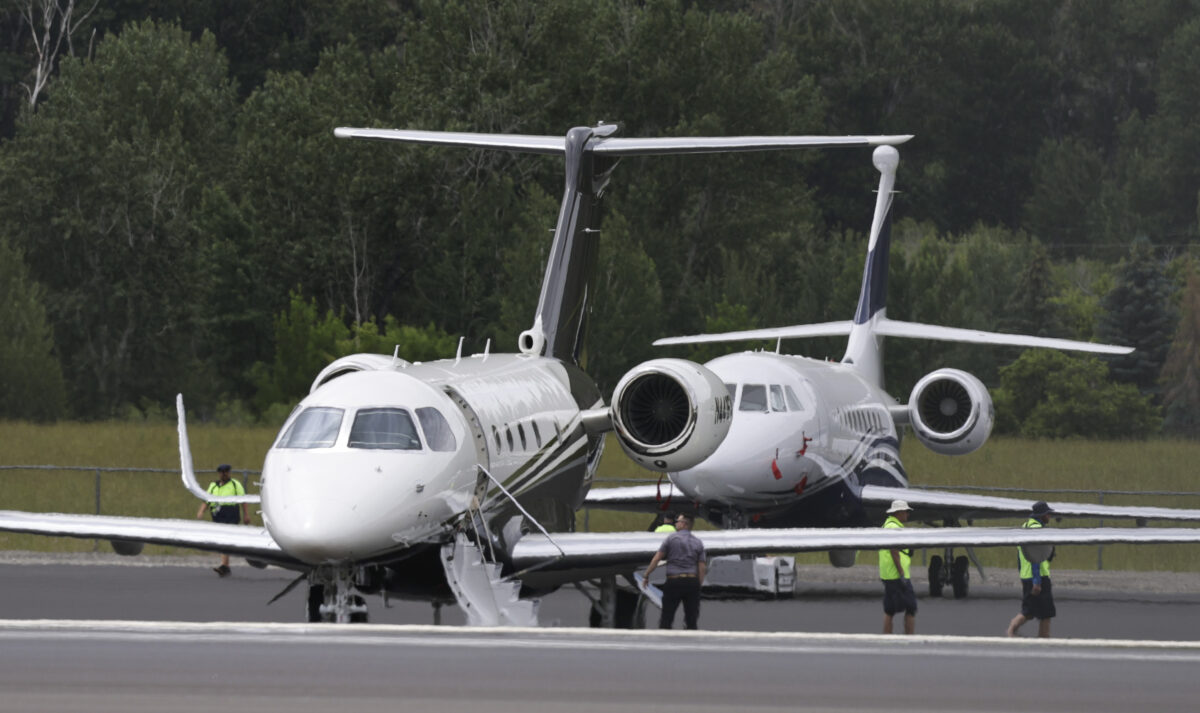Elon Musk has clarified Twitter’s recently revised doxxing policy after running a poll that asked users to weigh in on when to reinstate the suspended accounts of journalists who allegedly violated the policy by sharing Musk’s real-time location and “endangering” his family.
Twitter on Thursday announced changes to its Private Information policy—commonly referred to as its doxxing policy—prohibiting sharing of real-time location information or linking to external sources that share such data, citing a “risk of physical harm.”
The doxxing policy states that any account sharing real-time location information of private individuals (with the exception of the user themselves) would receive a temporary suspension of unspecified duration. The second time they do so, their account will be permanently suspended.
After Musk suspended a number of journalists’ accounts for allegedly violating the doxxing policy, he ran a poll on when he should “unsuspend accounts who doxxed my exact location in real-time.”
Musk then clarified that Twitter accounts “engaged in doxxing receive a temporary 7 day suspension” in an apparent general update on the platform’s private information policy.
Twitter has not returned a request for clarification whether the seven-day temporary suspension for first-time doxxing violations is a permanent shift that will be formally reflected in the text of the policy.

‘Crazy Stalker’
Twitter’s doxxing policy shift came after Musk unsuccessfully tried to persuade a Twitter account to stop sharing private jet movements in real time, and after what he described as a “crazy stalker” climbed onto a car carrying his 2-year-old son.
Later, citing the new doxxing policy, Musk suspended the accounts of a number of journalists, some of whom have been critical in their coverage of the billionaire tech mogul, prompting some Twitter users to claim he was singling out his critics.
“Musk has begun banning journalists who have criticized him,” a Twitter user posted, prompting Musk to react by saying, “Criticizing me all day long is totally fine, but doxxing my real-time location and endangering my family is not.”
“They posted my exact real-time location, basically assassination coordinates, in (obvious) direct violation of Twitter terms of service,” Musk added.
“If anyone posted real-time locations & addresses of NYT reporters, FBI would be investigating, there’d be hearings on Capitol Hill & Biden would give speeches about end of democracy!” he continued.
The accounts that were suspended belonged to CNN’s politics and tech correspondent Donie O’Sullivan, New York Times technology reporter Ryan Mac, Washington Post technology reporter Drew Harwell, Mashable tech reporter Matt Binder, The Intercept tech reporter Micah Lee, Voice of America’s Chief National Correspondent Steve Herman, journalist Aaron Rupar, and sports and political commentator Keith Olbermann.
At the time of reporting, the suspended accounts read, “Twitter suspends accounts that violate the Twitter Rules.”
Besides defending the suspensions, Musk ran a poll asking users when he should “unsuspend” the accounts.
In one version of the poll, 43 percent said “now,” 38.1 percent said “longer,” 14.4 percent said “7 days from now,” and 4.5 percent said “tomorrow.”
Unsuspend accounts who doxxed my exact location in real-time
— Elon Musk (@elonmusk) December 16, 2022
Citing “too many options,” Musk reran the poll with just two options—”now” and “in 7 days.”
With 17 hours left in the poll at the time of reporting, nearly 60 percent said “now,” while just over 40 percent said “in 7 days.”
Journalists React to Account Suspensions
Journalist Aaron Rupar, whose account was suspended as part of Musk’s anti-doxxing push, wrote on Substack Thursday night that he has “no idea what rules I purportedly broke” and that he has not had contact with Twitter regarding the suspension of his account.
Rupar also noted that prior to his suspension, he had posted a tweet regarding the ElonJet account that was suspended from Twitter, which he said was “still active on Facebook, with a link to the Facebook page.”
“Perhaps that did it, but I still don’t know what policy that could’ve possibly violated,” he wrote.
Twitter’s head of trust and safety told The Verge in a statement, “Without commenting on any specific accounts, I can confirm that we will suspend any accounts that violate our privacy policies and put other users at risk.”
A spokesperson for The New York Times said in a statement: “Tonight’s suspension of the Twitter accounts of a number of prominent journalists, including The New York Times’s Ryan Mac, is questionable and unfortunate. Neither The Times nor Ryan have received any explanation about why this occurred. We hope that all of the journalists’ accounts are reinstated and that Twitter provides a satisfying explanation for this action.”
Musk said in a tweet that the “same doxxing rules apply to ‘journalists’ as to everyone else.”
CNN said in a statement: “The impulsive and unjustified suspensions of a number of reporters, including CNN’s Donie O’Sullivan, is concerning but not surprising. Twitter’s increasing instability and volatility should be of incredible concern to everyone who uses the platform. We have asked Twitter for an explanation and we will reevaluate our relationship based on that response.”
Asked by a Twitter user to comment on CNN’s statement that it’s going to “reevaluate” its relationship with Twitter, Musk replied: “So they’re saying it’s really bad to suspend people from Twitter,” adding the thinking emoji, perhaps in tacit reference to the fact that some CNN commentators lauded Twitter’s decision to ban former President Donald Trump from the platform.
Musk has reinstated Trump and a number of other banned accounts.
Avi Yemini, a reporter for Rebel News, said in a tweet commenting on the reactions to the suspensions that it’s “amazing to see the mainstream media suddenly so anti-censorship,” adding that Musk “is a magician.”
Musk reacted with a wizard emoji.

Musk Bans Accounts Tracking Private Jets
Twitter on Wednesday suspended a number of accounts that tracked the movements of private planes, including those belonging to Musk as well as Amazon founder Jeff Bezos.
That came as Twitter Safety announced changes to its doxxing policy, prohibiting sharing of real-time location information or linking to external sources that share such data.
Users will still be able to share their own live location on Twitter, and content that shares live location information pertaining to public events or engagements, such as concerts, will also be allowed.
“Tweets that share someone else’s historical (not same-day) location information are also not prohibited by this policy,” Twitter Safety said.
In line with the new policy, Twitter has suspended the jet tracking accounts of Musk, Bezos, Meta CEO Mark Zuckerberg, Microsoft founder Bill Gates, and others.

Musk had previously sought to persuade the owner of the now-suspended @elonjet account, college student Jack Sweeney, to stop tracking his private plane, citing safety risks.
Sweeney’s personal Twitter account has also been suspended.
The teenager said on Mastodon that Musk “gave me no warning” before permanently suspending his account.
“[P]lus he suspended all of my accounts, half of which track aircraft (NASA aircraft, experimental aircraft, weather, airforce etc). not people including my personal,” Sweeney added.
Still, the teenager continues to track Musk’s jet on other platforms, including Facebook.
Besides suspending Sweeney’s account on Twitter, Musk said in a tweet that he’s suing Sweeney and “organizations who supported harm to my family.”
Musk’s threat to sue Sweeney came as the Twitter chief reported that on Thursday night, a “crazy stalker” climbed onto a car carrying his 2-year-old son in Los Angeles.
“Any account doxxing real-time location info of anyone will be suspended, as it is a physical safety violation. This includes posting links to sites with real-time location info,” Musk said on Twitter, echoing the policy change announced by Twitter Safety.
Sweeney expressed disappointment that his jet-tracking account has been suspended, in an interview with the Sydney Morning Herald.
“He said this is free speech and he’s doing the opposite,” Sweeney told the outlet.
The Epoch Times has reached out to Sweeney with a request for comment on the lawsuit.









